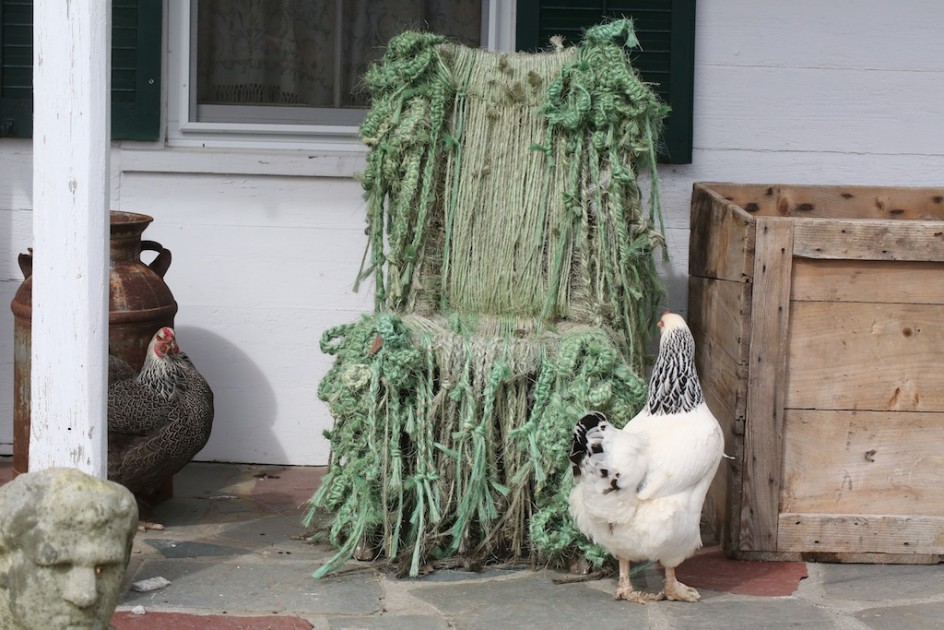
In conversations with my friends, a dinner gatherings, in messages online, talk often turns to the problem of anxiety. How everyone is anxious or angry, how anxiety seems to be devouring us, bit by bit, overwhelming conversation. Increasingly, I think of technology as a primary source of this fear.
Bad and troubling news rains in on us day and night, there is almost no escaping it. The technologies that are supposed to save us time and make our lives easier and ease anxiety seem instead to be degrading our peace of mind, personal connections and quality of life. “Anxiety is love’s greatest killer,” wrote Anais Nin.
Conflicts that were once resolved face to face became hateful and hostile battles on social media.
Our devices and operating systems fail, and force into the frustration and resentment of finding ourselves in the cold and uncaring arms of corporations, who pretend to care about us but do not. We think in same-minded digital communities that permit us to never think of be challenged or disagreed with. We are increasingly depended on data and social systems that make us confused and uneasy – and eerily dependence on things we cannot see or feel.
We are restless, we can be drawn into the maelstrom at any given moment, life is complex and requires lots of passwords and notifications. A complex life is an anxious by almost any definition. And who do we know whose life is not complex? The very advances that were supposed to make our lives simpler are overwhelming us and our sense of control.
More and more, we are pushed towards the resolution of problems that do not involve people, human voice, or social contact. Often, no solutions or resolutions are possible. We are overwhelmed with information, much of it increasingly polarizing or useless, we have lost our privacy, dignity, and in many cases, community.
We have perhaps walked into our own traps, dependent on systems that control us, not the other way around, and make us feel vulnerable and helpless – anxious.
“Everyone has some relief – tennis, yoga, a massage every Thursday,” writes Christian Wimans in The Bright Abyss, “but the very way in which those activities are framed as apart from regular life suggests the extent to which the relief is temporary.”
I have suffered from psychological, not technological anxiety for much of my life. I was a valium addict for decades and was treated for anxiety by analysts, psycho-therapists, holistic and homeopathic healers, by social workers and spiritual counselors. I still experience anxiety, but in a shadow form, literally a fraction of its former self.
Life itself makes me anxious – watching the news, listening to the angry rants of political leaders, watching the hyper weather channels selling their storms, struggling to keep my devices working, my passwords accessible, dreading the tire of any single computer, calling technical support. Any computer can shut down my world at any moment and turn all the others against me.
I am, in some ways, more alone than ever, but far less lonely than when I lived in collective institutions – journalism, television. I sense there is no lonelier place to be for so many workers than in corporate environments like Amazon warehouses and big office complexes, where people are thrown away like garbage every day. Government feels far removed from us, something to resent rather than love and protect.
Wimans writes that there is a distinction to be made between the anxiety of daily existence, which we talk about endlessly, and the anxiety of existence itself, which we rarely talk about at all. In one form or another, I think we fear death and mortality, struggle to postpone or deny it to the extent than we can, only to find ourselves trapped in a different kind of trap, the struggle against a meaningful and hollow existence. A common and likely danger, perhaps the most frightening of all.
For me, consciousness has been the cure for much of my anxiety. Consciousness is not an intellectual exercise, but an emotional one. We become conscious by being authentic, finding our voice, accepting suffering and death, comprehending our true selves and reality. Who are we, really, what is the ground upon which we are standing? What is the truth about ourselves that we need to face? And yes, how do we wish to die.
The challenge is that the institutions upon which we have always depended for solace, guidance and inspiration seem exhausted and remote. Religion, technology, politics have failed to uplift and comfort us. The corporations that now dominate our personal, political and cultural lives are neither responsive nor compassionate, that is not their purpose.
More and more, we turn to animals for the love and comfort and warmth that seems sometimes to be vanishing from our lives. They ease our anxiety.
I think being anxious is a hallmark of our times, something, like death, that should unite us, not divided us. The more aware I am of being anxious, the less anxiety I feel. The more aware of me I am, the more grounded and less fearful I am. After all, if you come to terms with death, our common fate, what is there really to fear?
